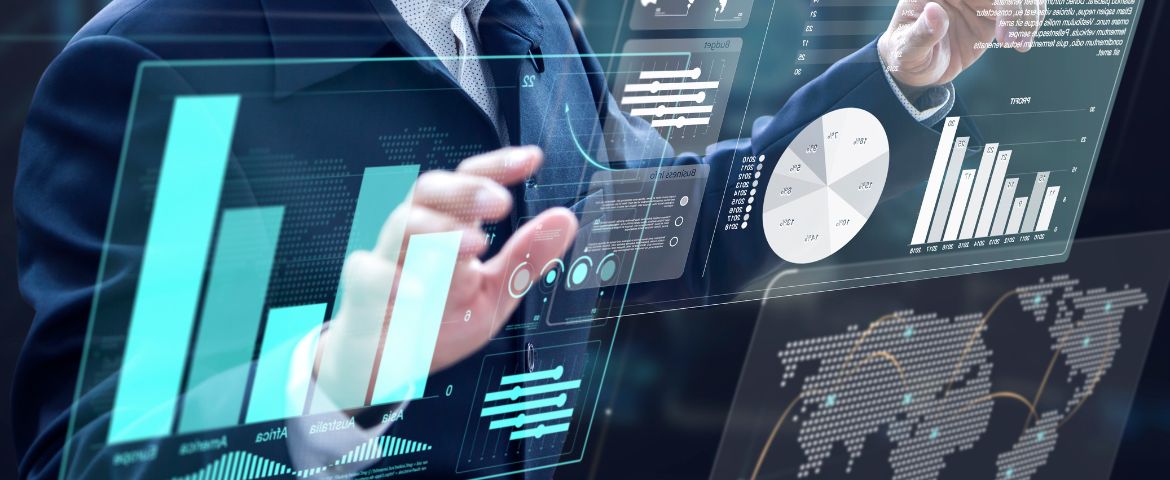AI INNOVATIONS: TRANSFORMING INDUSTRIES
Artificial Intelligence (AI) has emerged as one of the most transformative technologies of the 21st century. From healthcare to finance, AI is revolutionizing various industries by automating processes, enhancing decision-making, and creating new opportunities. This article explores how AI innovations are transforming different sectors and driving unprecedented growth.
WHAT IS ARTIFICIAL INTELLIGENCE?
Artificial Intelligence refers to the development of computer systems that can perform tasks typically requiring human intelligence. These tasks include learning, reasoning, problem-solving, understanding natural language, and perceiving sensory inputs. AI systems use algorithms and data to make decisions and predictions, continuously improving their performance over time.
AI IN HEALTHCARE
1. DIAGNOSTICS AND PREDICTION
AI is revolutionizing healthcare by improving diagnostics and prediction. Machine learning algorithms can analyze medical images, detect anomalies, and diagnose conditions such as cancer, heart disease, and neurological disorders with high accuracy. AI-powered predictive models can also forecast disease outbreaks and patient outcomes, enabling proactive healthcare management.
2. PERSONALIZED MEDICINE
Personalized medicine involves tailoring medical treatments to individual patients based on their genetic, environmental, and lifestyle factors. AI can analyze vast amounts of genetic data to identify the most effective treatments for specific patients, improving treatment outcomes and reducing adverse effects.
3. ROBOTIC SURGERY
AI-driven robotic systems are transforming surgical procedures. These systems provide surgeons with enhanced precision, flexibility, and control, leading to minimally invasive surgeries and faster patient recovery times. AI algorithms assist in planning and executing complex surgeries, reducing the risk of human error.
AI IN FINANCE
1. FRAUD DETECTION
AI is enhancing fraud detection in the finance sector. Machine learning algorithms can analyze transaction patterns and identify suspicious activities in real-time. This proactive approach helps financial institutions prevent fraud and protect their customers' assets.
2. ALGORITHMIC TRADING
AI-driven algorithmic trading involves using computer algorithms to execute trades at high speeds and volumes. AI models can analyze market data, identify trading opportunities, and make split-second decisions, optimizing trading strategies and maximizing profits.
3. CUSTOMER SERVICE
AI-powered chatbots and virtual assistants are improving customer service in the finance industry. These AI systems can handle a wide range of customer inquiries, provide personalized financial advice, and assist with transactions, enhancing the overall customer experience.
AI IN MANUFACTURING
1. PREDICTIVE MAINTENANCE
Predictive maintenance uses AI to predict equipment failures before they occur. Machine learning algorithms analyze data from sensors and identify patterns that indicate potential issues. This allows manufacturers to perform maintenance proactively, reducing downtime and repair costs.
2. QUALITY CONTROL
AI is improving quality control processes in manufacturing. Computer vision systems powered by AI can inspect products for defects with greater accuracy and speed than human inspectors. This ensures higher product quality and reduces waste.
3. SUPPLY CHAIN OPTIMIZATION
AI is optimizing supply chain management by analyzing data on demand, inventory, and logistics. AI algorithms can predict demand fluctuations, optimize inventory levels, and streamline logistics operations, improving efficiency and reducing costs.
AI IN RETAIL
1. PERSONALIZED SHOPPING EXPERIENCES
AI is transforming the retail industry by providing personalized shopping experiences. AI algorithms analyze customer data, such as purchase history and browsing behavior, to offer personalized product recommendations and targeted marketing campaigns.
2. INVENTORY MANAGEMENT
AI-powered inventory management systems help retailers optimize stock levels and reduce waste. Machine learning models can predict demand for different products, ensuring that retailers maintain optimal inventory levels and avoid stockouts.
3. CUSTOMER SERVICE
AI chatbots and virtual assistants are enhancing customer service in retail. These AI systems can handle customer inquiries, provide product information, and assist with purchases, improving the overall shopping experience.
AI IN TRANSPORTATION
1. AUTONOMOUS VEHICLES
Autonomous vehicles, powered by AI, are set to revolutionize transportation. AI algorithms enable self-driving cars to navigate roads, avoid obstacles, and make real-time decisions. This technology promises to improve road safety, reduce traffic congestion, and provide greater mobility options.
2. ROUTE OPTIMIZATION
AI is optimizing route planning and logistics in transportation. Machine learning models can analyze traffic data, weather conditions, and delivery schedules to determine the most efficient routes. This reduces travel time, fuel consumption, and operational costs.
3. PREDICTIVE MAINTENANCE
Similar to manufacturing, AI is used for predictive maintenance in transportation. AI systems monitor vehicle health, predict potential failures, and schedule maintenance proactively, reducing downtime and maintenance costs.
AI IN EDUCATION
1. PERSONALIZED LEARNING
AI is transforming education by providing personalized learning experiences. AI-powered platforms can analyze student performance and learning styles to create customized learning plans. This helps students learn at their own pace and improves educational outcomes.
2. AUTOMATED GRADING
AI is streamlining the grading process in education. Machine learning algorithms can grade assignments and exams with high accuracy, providing immediate feedback to students and reducing the workload for educators.
3. VIRTUAL TUTORS
AI-powered virtual tutors are assisting students with their studies. These tutors can provide explanations, answer questions, and offer additional resources, supporting students outside of the classroom.
CONCLUSION
AI innovations are transforming industries by automating processes, enhancing decision-making, and creating new opportunities. From healthcare and finance to manufacturing and education, AI is driving unprecedented growth and efficiency. As AI technology continues to evolve, its impact on various sectors will only increase, offering even more potential for innovation and progress.If you're ready to harness the power of AI for your business, visit WaysAheadGlobal for cutting-edge solutions tailored to your needs. Don’t miss out on the opportunity to transform your industry with advanced AI technology!














Comments (5)
HOW IS AI USED IN PREDICTIVE MAINTENANCE?
AI is used in predictive maintenance by analyzing data from sensors and other monitoring devices to predict when equipment is likely to fail. Machine learning algorithms identify patterns and signals that indicate potential issues, allowing maintenance to be scheduled proactively, reducing downtime and repair costs.
WHAT ARE THE BENEFITS OF AI-POWERED CHATBOTS IN CUSTOMER SERVICE?
AI-powered chatbots in customer service offer several benefits, including 24/7 availability, quick response times, and the ability to handle a large volume of inquiries simultaneously. They can provide personalized assistance, answer common questions, and help with transactions, improving the overall customer experience.